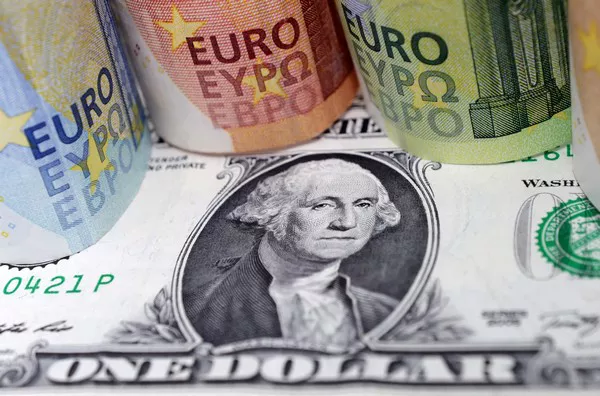In the realm of international finance, the Euro to Dollar exchange rate is a critical indicator that influences global trade, investment, and economic stability. The Euro (EUR) and the United States Dollar (USD) are two of the world’s most dominant currencies, and their exchange rate is closely monitored by businesses, governments, and investors worldwide. This article aims to provide a comprehensive analysis of what the Euro to Dollar exchange rate is, the factors influencing it, and its implications on the global economy.
Overview of the Euro to Dollar Exchange Rate
The Euro to Dollar exchange rate, often denoted as EUR/USD, represents the value of one Euro in terms of US Dollars. In other words, it indicates how much one Euro can be exchanged for in the foreign exchange (forex) market. The exchange rate is dynamic and fluctuates based on various economic factors, geopolitical events, and market sentiment.
The Role of the Euro and Dollar in the Global Economy
Before delving into the factors influencing the Euro to Dollar exchange rate, it’s crucial to understand the significance of these currencies in the global economy. The Euro, introduced in 1999, is the official currency of the Eurozone, which comprises 19 of the 27 European Union member states. The Euro is the second most traded currency in the world and plays a pivotal role in international trade and finance.
On the other hand, the United States Dollar is the world’s primary reserve currency and is widely used in global trade transactions. The USD’s dominance stems from the economic strength of the United States and the stability of its financial markets. As a result, the Euro and Dollar are integral components of the global monetary system.
Factors Influencing the Euro to Dollar Exchange Rate
Interest Rates: Central banks play a crucial role in influencing exchange rates through monetary policy. Interest rate differentials between the European Central Bank (ECB) and the Federal Reserve (Fed) can impact the attractiveness of holding Euro or Dollar-denominated assets. Higher interest rates in one currency can attract foreign capital, leading to an appreciation of that currency.
Economic Indicators: Key economic indicators, such as GDP growth, employment rates, and inflation, can significantly impact the Euro to Dollar exchange rate. Strong economic performance in the Eurozone or the United States can lead to currency appreciation, while economic challenges may result in depreciation.
Trade Balance: The trade balance between the Eurozone and the United States can influence the exchange rate. A trade surplus in the Eurozone may lead to an increased demand for Euro, while a trade deficit may lead to higher demand for the Dollar.
Political Stability and Geopolitical Events: Political stability is a crucial factor in currency valuation. Political uncertainty or geopolitical events can lead to market volatility and impact investor confidence, influencing the Euro to Dollar exchange rate.
Market Sentiment and Speculation: Traders and investors often engage in currency speculation based on market sentiment and expectations. Positive economic outlooks, geopolitical stability, or other factors can lead to increased demand for a currency, affecting its exchange rate.
Implications for the Global Economy
The Euro to Dollar exchange rate has far-reaching implications for the global economy:
International Trade: Exchange rate fluctuations impact the competitiveness of exports and imports. A stronger Euro can make Eurozone exports more expensive, potentially affecting trade balances.
Inflation and Monetary Policy: Central banks closely monitor exchange rates as they influence inflation rates. Currency appreciation or depreciation can impact import prices and domestic inflation, influencing central banks’ monetary policy decisions.
Investment Flows: Investors allocate capital based on exchange rate expectations. A favorable exchange rate can attract foreign investment, while an unfavorable one may lead to capital outflows.
Global Financial Stability: Exchange rate movements can impact global financial markets. Sudden and significant changes in the Euro to Dollar exchange rate may contribute to financial instability, affecting asset prices and market sentiment.
See Also Are Gold Dollars Made Of Real Gold
Conclusion
The Euro to Dollar exchange rate is a critical metric in the world of international finance, reflecting the relative strength of two major global currencies. Its fluctuations are influenced by a myriad of factors, including interest rates, economic indicators, trade balances, political stability, and market sentiment. Understanding the implications of these fluctuations is crucial for businesses, governments, and investors as they navigate the complexities of the global economy. As the Euro and Dollar continue to play pivotal roles in international trade and finance, monitoring and analyzing their exchange rate dynamics will remain paramount for informed decision-making on a global scale.


